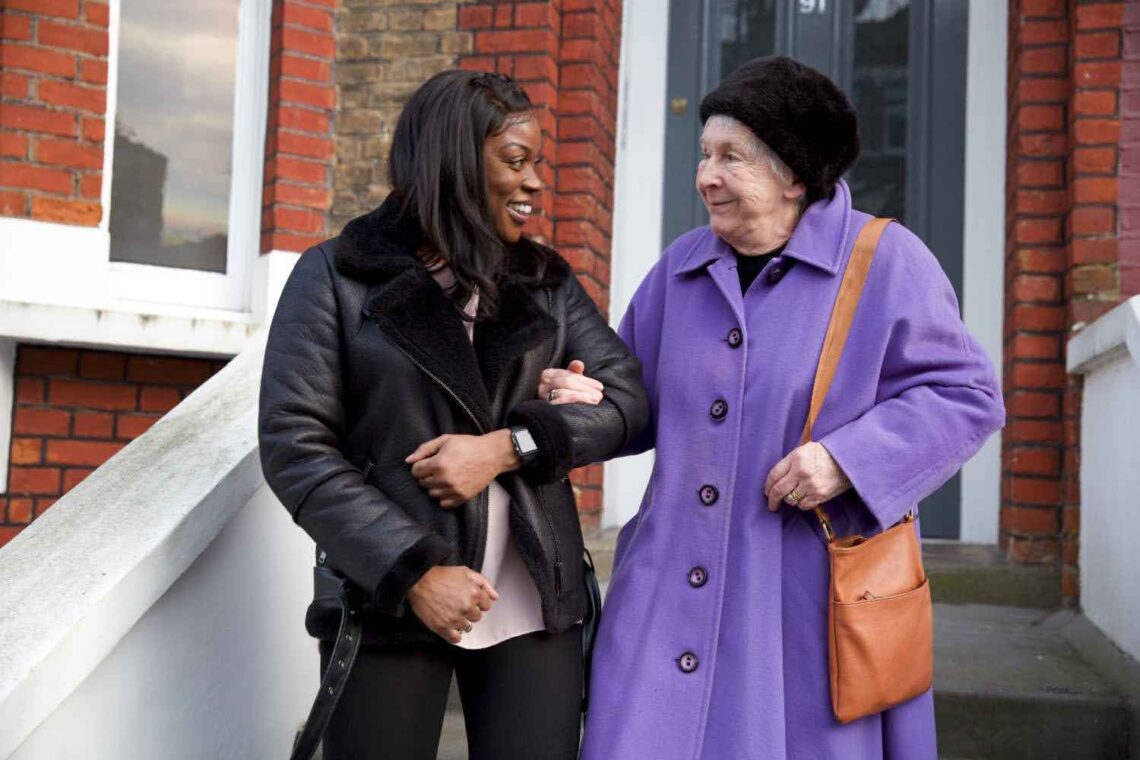This October marks Speak Up Month in the UK. The campaign promotes environments where people feel safe voicing concerns. This year’s theme, “Listen Up”, emphasises that listening requires action, not just attention.
For families navigating dementia care, this is fundamental. When someone living with dementia feels heard, their dignity remains intact. When care adapts based on what people actually need, outcomes improve. At Hometouch, listening forms the foundation of how we deliver clinical expertise at home.
Why listening becomes harder with dementia
As dementia progresses, communication becomes more difficult. Confusion, memory loss, and frustration prevent people from expressing their needs clearly. Yet these needs remain just as important.
When care recipients feel listened to, several things happen. Their sense of autonomy remains intact, even as they need more support. Concerns surface early, before they develop into crises. Trust builds between carers, recipients, and families. Care plans stay aligned with lived experience rather than assumptions.
How we build a listening culture
Our doctor-founded approach means clinical expertise guides every aspect of care. This includes how we listen and respond.
Finding a carer who clicks
Before we recommend any carer, our clinical team conducts a thorough assessment. We learn about daily routines, preferences, and what matters most. This goes beyond medical requirements, instead focusing on understanding who they are as a person.
We then match your loved one with a carer who understands both their clinical needs and unique personality. This personalised approach means care respects their dignity in familiar surroundings.
Custom care plans with ongoing oversight
Your clinical manager creates a custom care plan based on individual needs. Plans are reviewed regularly in person, and we adjust these as needs change or concerns emerge.
When families raise issues, we respond, whether that’s through adjustments to care times or modifications of daily routines. Specific concerns about medication or safety are addressed promptly. Our clinical team provides round-the-clock support for questions or concerns. This ongoing oversight means you’re never managing care alone.
Safe spaces for honest feedback
Families need confidence that raising concerns won’t damage relationships, and we build this safety into our service structure.
Your clinical manager maintains regular contact with both the care recipient and family. These check-ins create natural opportunities for feedback, meaning you don’t need to initiate difficult conversations alone.
“Communication is not just about words, it’s about connection. For a person living with dementia, every gesture, tone, and moment of patience helps preserve their dignity, reduce confusion, and remind them they are still seen, heard, and valued.” – Dimple Chandarana – Head of Clinical Governance at Hometouch
Account management proactively handles continuity and addresses issues as they arise. As a result, concerns are resolved quickly, often before they escalate into larger problems.
Listening leads to care confidence
When families feel heard, they’re able to share more information, which helps carers provide more responsive, personalised support. Better support leads to improved outcomes and greater peace of mind.
This culture extends throughout our team. Every carer receives comprehensive dementia training from our clinical team. Training includes specific guidance on communication techniques for people with cognitive impairment.
When you need support
Families contact us at different points in their care journey. Some are planning ahead, as early-stage dementia begins to affect daily life. Others face urgent decisions following a hospital discharge or sudden decline. Wherever you are in this journey, our care experts can explain how specialist dementia care works at home and what support might look like for your whole family.
Care doesn’t end once it begins. If something isn’t working or a carer match isn’t quite right, we want to hear about it. Care should adapt as dementia progresses, not remain fixed to an initial plan that no longer serves the person receiving it.
At Hometouch, clinical expertise means responding to what people actually need. The person receiving care, their family, and the carers providing daily support all contribute valuable perspectives. Listening carefully becomes more important as communication becomes harder. Our responsibility is to hear what’s said, observe what isn’t, and act on both.
Talk to one of our care experts today – no pressure, just clear answers about specialist dementia care at home.

